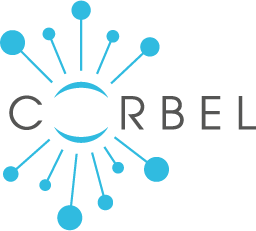
General information
| Full name | European Infrastructure for Translational Medicin |
| Short name | EATRIS |
| Legal status | ERIC |
| Operational status | fully operational |
| | |
| Coordinating institution | EATRIS-ERIC |
| Operations & Finance Director | Anton Ussi |
| | |
| RI member countries | BG, CZ, ES, FI, FR, IT, LU, LV, NL, NO, PO, SI, SE |
| Observer | - |
| Website | www.eatris.eu |
| Contact | Anton Ussi antonussi [at] eatris.eu |
National nodes
This sections provides an overview on the national subsidiaries of the RI.
| Name | Website, contact |
| Finland | Contact: Andreas Scherer, andreasscherer [at] eatris.eu |
| Sweden | Contact: Ulrika Backman, ulrikabackman [at] eatris.eu Website |
| Norway | Laetitia Abdou Garonne, l.a.garonne [at] ncmm.uio.no http://eatris.eu/no |
| France | Lauranne Duquenne, lauranne.duquenne@cea.fr |
| Italy | Francesca Capone, francesca.capone [at] iss.it |
| Portugal | Dinah Duarte, dinah.duarte [at] infarmed.pt |
| Bulgaria | Rossitza Konakchieva, alliancecelltechnologies [at] abv.bg |
| Czech Republic | Marian Hajduch, marian.hajduch [at] upol.cz |
| Spain | Fatima Nunez, fatima.nunez [at] vhir.org |
| Luxembourg | Frank Glod, frank.glod [at] lih.lu |
| Latvia | Uldis Berkis, uldis.berkis [at] rsu.lv |
| The Netherlands | Gerrit Meijer, g.meijer [at] nki.nl |
| Slovenia | Irena Mlinaric, irena.mlinaric [at] ffa.uni-lj.si |
Description of the organisation
EATRIS, the European infrastructure for translational medicine, provides high quality services in early development of novel therapeutics and diagnostics. Translational research is defined as research that develops promising biomedical innovations 'from bench to bedside,' and conversely brings clinical insights from bedside back to bench.
Translational research is a highly multi-disciplinary and complex undertaking. As a consequence, a major challenge in developing new innovations is understanding what steps need to be taken, and what expertise and technologies are suitable to perform these steps. External researchers in need for academic support will find that EATRIS is able to provide guidance by means of regulatory, clinical and technological expertise available within the infrastructure. Subsequently, EATRIS will match the need with the capabilities within the infrastructure and facilitate collaboration among academics and between academics and companies.
Service offer
A list of services offered by EATRIS can be downloaded here.
 shared services for life-science
shared services for life-science